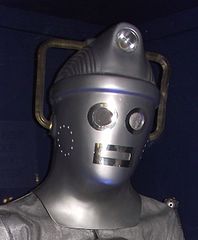TNG was when it hit the mainstream internationally. Time magazine covers? Newsweek?
TOS got cancelled after series three. We love it. All of it. You love it, I love it, but mainstream success is what happens in the eighties and nineties particularly. Touring Trek Exhibitions? Prime TV slots on UK TV? Mainstream magazines dedicating features and special issues to premiere episodes? Finales?
In its time, TNG and the Berman Era undoubtedly did better than TOS in its time. The seven years of TNG alone are testament to this. But, the important part is the ‘in its time’ and particularly for me, as you say, ‘internationally’. TOS without the rest of the franchise is Space 1999 or Galáctica. It’s not even Thunderbirds or Captain Scarlet (both of which had later mini booms based on repeats twenty or thirty years later, leading to things like the Tracey Island on Blue Peter Phenomenon)
TOS with the movies, but particularly with TNG and it’s sucessors, it’s what has given the franchise its legs. In 1993 or thereabouts, Trek in the mainstream had Stewart as its face.
Now, later, a combination of events mean that mainly its TOS that hovers in the conciousness (but it’s chicken and egg, is that because it’s naturally more enduring or naturally ‘better’ or if it’s simply has appeals in certain demographics. It being a part of sixties counterculture can’t hurt it’s usefulness to be dug up) but in it’s day, TNG eclipsed it’s progenitor. Seven series and launching two more off its popularity....vs cancelled after three and then making its rep by refusing to fade away (credit where it’s due)
Yes, I am of that generation, but it doesn’t make me antiTOS or some kind of insecure fanboy for ‘my’ era, in this case it’s just cold hard fact. If you take away the advantage of age (TOS had twenty years of reruns on TNG to rack up its viewings and in a different television landscape where reruns were more relevant than they were twenty years after TNG...) then it’s inescapable. TNG is the series that took Trek properly mainstream, and did not fail in its first run. All the series then benefit from their relationship with each other, and I won’t do TOS down (it’s where it all began....) but, it’s cold hard fact that when you launched a generic Trek product back then, it was with TNG branding. Now...well, now it’s TOS...or TNG. step forward The Official Starships collection...what was the first issue? The enterprise D. First issue of Star Trek magazine circa 1993? Picard, with free TNG bookmarks. Star Trek Factfiles? With TNg now on movies, Ds9 on TV and Voyager just starting....nope, enterprise D front and centre.
It’s not even a fight, because I don’t think either can exist in their current form without the other, and there’s no antagonism...except in fans heads.
This is flawed in that media and the way the world worked in the 1960's was much different than the 1980/90's. You said yourself by specifying "in it's time". TNG may have been more successful "in its time" vs TOS, but the entire point here is the transcendence of time.
The facts are pretty clear, if TNG was such an obvious runaway success and cultural icon, we'd be watching post Nemesis JJ movies and series now.
But we're not. Because it's not.
That doesn't mean its not good...it just isn't even in the same ballpark as TOS.
Last edited:







